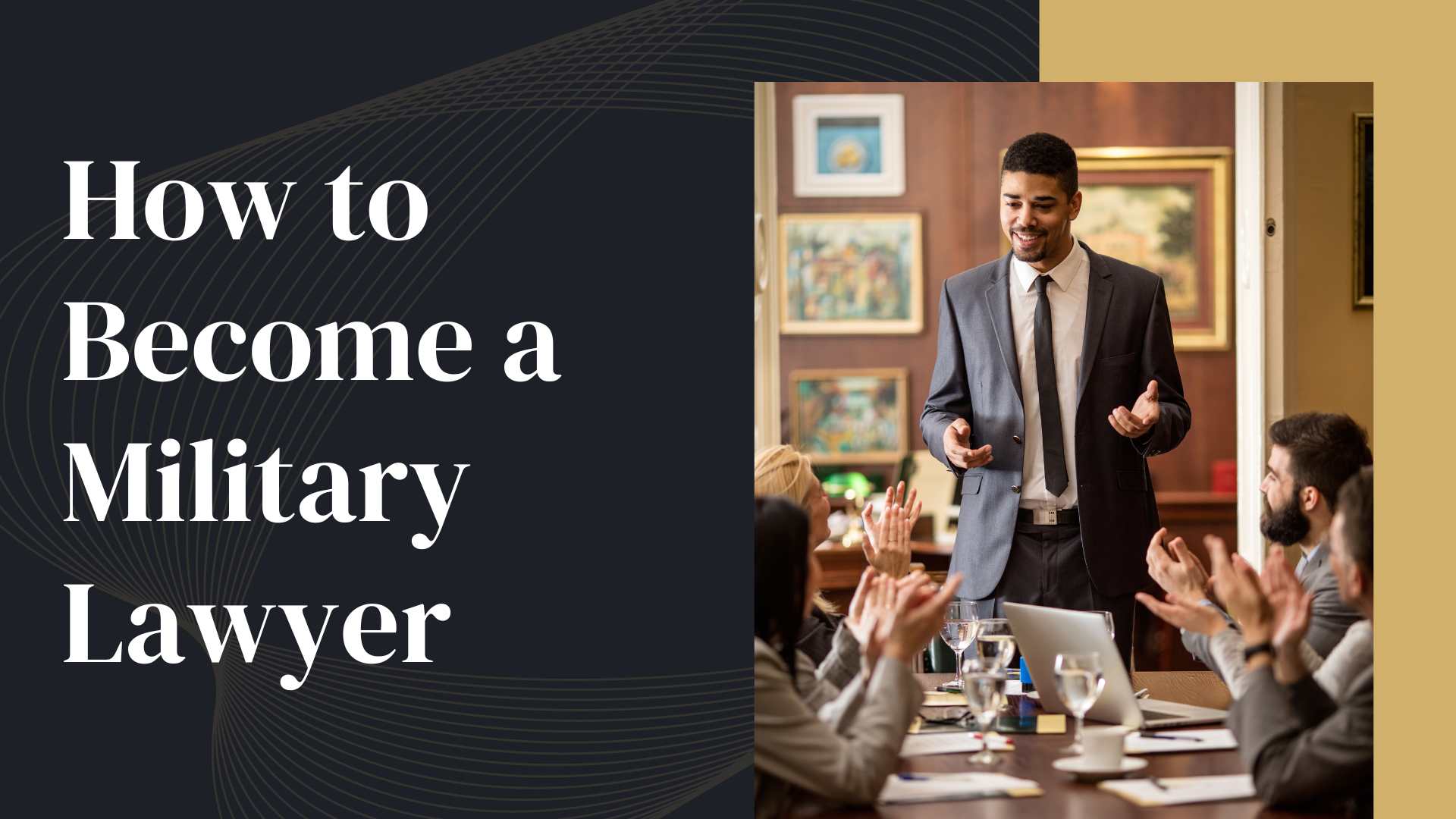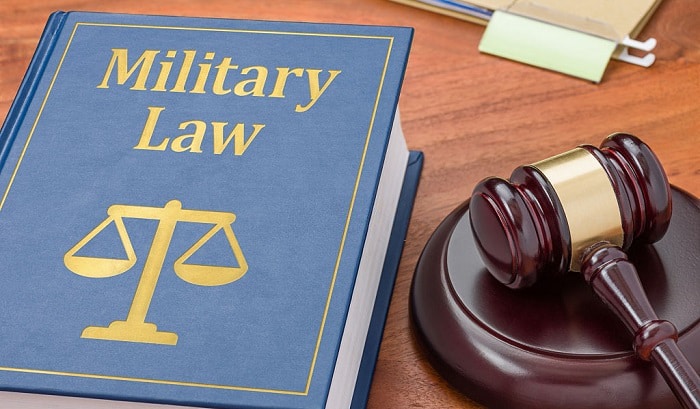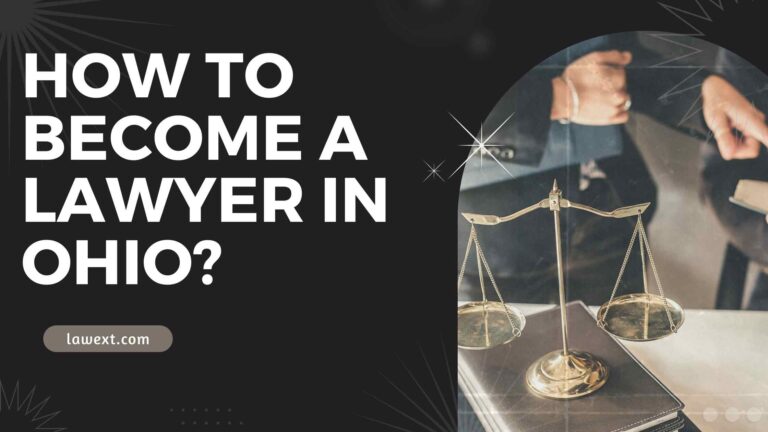How to Become a Military Lawyer?

To become a military lawyer, one must earn a law degree and pass the bar exam. They also have to complete officer training for the specific branch of the military they wish to join.
Becoming a military lawyer, commonly known as a Judge Advocate, combines the rigors of law school with the discipline of military training. This esteemed role requires a strong commitment to both legal excellence and military service. After obtaining a Juris Doctor (JD) degree from an accredited law school, aspiring military lawyers must clear the state bar examination to practice law.
Subsequently, they must be commissioned as officers in one of the branches of the armed forces—Army, Navy, Air Force, Marines, or Coast Guard. This process includes officer training school where leadership and military skills are honed. Serving in the role of a military lawyer offers the unique opportunity to handle legal matters that could range from international law to criminal prosecutions, shaping professionals with a blend of courtroom prowess and strategic military insight.
The Role Of A Military Lawyer
Military lawyers, known as Judge Advocates, serve a crucial function. These legal experts uphold justice within the armed forces. They handle a diverse array of legal matters, from advising commanders to defending service members in court.
Varied Responsibilities In Service
Judge Advocates hold multifaceted duties intertwined with military operations. Their responsibilities range widely:
- Court-martial prosecutions, where they represent the government.
- Defense counsel for accused military personnel.
- Legal advice to commanders on military operations.
- Administrative law including discipline and personnel policies.
- International law and law of armed conflict adherence.
- Guidance on issues like contracts and fiscal law.
Comparing Civilian And Military Law
Military law differs vastly from civilian law. Judge Advocates understand both civil and military codes. They learn unique military legal systems and justice procedures.
| Civilian Law | Military Law |
|---|---|
| Applies to civilians and encompasses broad legal areas. | Applies to military personnel and focuses on military-specific issues. |
| Operates in federal and state courts. | Operates in military courts, such as court-martial. |
| Attorneys often specialize in a particular field. | Attorneys are versed in various legal aspects affecting service members. |
Credit: www.quora.com
Basic Requirements For Aspiring Military Lawyers
The journey to becoming a military lawyer blends rigorous academic study with physical preparedness. Meeting the basic requirements sets the foundation for a career in military justice. Let’s explore the key steps aspiring military lawyers must take.
Educational Pathways
A solid educational background is paramount. The process begins with an undergraduate degree. Prospective military lawyers often choose Political Science, History, or Criminal Justice as their majors. Following this, a Juris Doctor (JD) from an accredited law school is required. Participation in activities like moot court or law review also bolsters a candidate’s profile. The last academic step involves passing the bar exam in the state where one wishes to practice.
- Bachelor’s Degree: Obtain an undergraduate degree.
- Law School: Graduate from a law school with a JD.
- Bar Exam: Pass the state bar exam to practice law.
Physical And Medical Standards
Military lawyers must also meet physical and medical standards similar to other military officers. This includes passing a Physical Fitness Test (PFT), which varies by service branch. Criteria can include push-ups, sit-ups, running, and sometimes swimming. A comprehensive medical evaluation ensures candidates are fit to serve.
Height and weight standards apply. Vision and hearing tests are part of the evaluation. A history of good health and physical fitness supports a candidate’s application.
| Physical Requirement | Details |
|---|---|
| Physical Fitness Test (PFT) | Includes endurance and strength exercises. |
| Medical Evaluation | Ensures overall health and fitness to serve. |
| Height/Weight Standards | Must meet the service branch’s regulations. |
Legal Education And Specialization
The journey to becoming a military lawyer starts with a firm legal foundation. Legal education provides the tools and knowledge required to excel in the rigorous and dynamic field of military law. Specializing in this domain demands focus, discipline, and a tailored educational path that aligns with military legal needs.
Choosing The Right Law School
Selecting a law school is a strategic decision that sets the stage for your career. Factors to consider include:
- Accreditation: Ensure the law school is ABA-approved.
- Programs Offered: Look for schools with a strong military law focus.
- Career Services: Check for institutions offering internships with military legal departments.
- Location: Nearby military bases or courts may provide practical opportunities.
Military Law Curriculum
Curriculum tailored to military law is vital for specialized knowledge. Key courses include:
| Course | Description |
|---|---|
| Military Justice | Study of the Uniform Code of Military Justice (UCMJ). |
| International Law | Focus on laws governing armed conflict and military operations. |
| National Security Law | Covers legal aspects of national defense policies. |
| Administrative Law | Understanding the administrative procedures within the Armed Forces. |
Engaging in moot court competitions and military law clinics further sharpens practice-ready skills.

Credit: www.thesoldiersproject.org
Entering The Service
Becoming a military lawyer means embracing a world that combines law and military service. Your path includes rigorous academic preparation and military training. Step into a career that upholds justice while serving your country. Begin your journey understanding the legal disciplines and dedication involved.
The Judge Advocate General’s (jag) Corps
Aim for The Judge Advocate General’s (JAG) Corps, the legal branch of the U.S. military. JAG attorneys handle military justice and civil law matters, including advising commanders and prosecuting military crimes.
- Complete an ABET-accredited school
- Pass the bar examination in your state
- Undergo a background check and fitness assessment
- Attend the military’s Officer Training School (OTS)
Branch-specific Commissioning Programs
Each military branch offers unique commissioning programs. Prioritize eligibility criteria for the Air Force, Army, Navy, or Marines’ JAG Corps.
| Branch | Program Name | Length |
|---|---|---|
| Army | Direct Commission Course (DCC) | 6 weeks |
| Navy | Officer Development School (ODS) | 5 weeks |
| Air Force | Judge Advocate Staff Officer Course (JASOC) | 10 weeks |
| Marines | The Basic School (TBS) | 6 months |
Bear in mind, each program demands integrity, leadership skills, and a commitment to service. Prepare to embark on a rewarding path that serves both justice and your country.
Training And Professional Development
Becoming a military lawyer demands dedication and rigorous training. Military lawyers, known as Judge Advocates, serve their country by combining legal expertise with military leadership. They undergo specialized training to navigate the unique legal system of the armed forces. Let’s explore the essential steps of training and professional development for aspiring military lawyers.
Initial Officer Training
Every military lawyer starts as an officer. The journey begins with Initial Officer Training, which lays the foundational military skills. It is an intensive program focusing on leadership, physical fitness, and military law. Candidates learn about:
- Military culture and protocols
- Basic legal officer duties and responsibilities
- Leadership and ethics
The training program’s duration can vary based on the branch of the military. Graduates move on to advanced courses in military justice and specific areas of law.
Continuing Legal Education Within The Military
After initial training, continual learning is key. Military lawyers must stay updated with the latest legal changes. They engage in Continuing Legal Education (CLE) programs, which offer:
| Component | Description |
|---|---|
| Workshops | Interactive sessions on current legal issues |
| Seminars | Discussions led by legal experts |
| Online Courses | Modules available for remote learning |
These CLE programs ensure that military lawyers maintain the highest standards of legal proficiency. Enlisted Judge Advocates receive training to tackle challenges in diverse legal fields, ranging from criminal law to international law.
By keeping abreast with the latest developments, military lawyers enhance their careers and contribute significantly to the justice system within the armed forces.
Career Advancement And Opportunities
Stepping into the world of military law opens doors to vast opportunities. The pathway to career advancement as a military lawyer is clear. It involves dedication, strategic thinking, and consistent performance.
Building A Reputation In The Jag Corps
Military lawyers must first excel within the Judge Advocate General’s (JAG) Corps. Success leads to recognition and career growth. Here are steps to build a strong reputation:
- Demonstrate legal proficiency by winning cases and providing excellent advice.
- Engage in continuous learning to stay updated on laws and regulations.
- Develop leadership skills to lead teams effectively and take on additional responsibilities.
- Participate in high-profile cases, which can open doors to advanced roles.
Building a strong network within the JAG Corps is also critical. It helps in garnering endorsements necessary for promotional consideration.
Transitioning To Civilian Legal Careers
Military lawyers often transition to civilian careers. Their experience positions them favourably for success. Key steps to transition smoothly:
- Acquire additional certifications that align with civilian legal standards.
- Understand civilian legal practices to adjust from the military framework.
- Highlight transferable skills like discipline, analysis, and management.
| Experience | Benefits in Civilian Careers |
|---|---|
| Legal expertise | Foundation for roles in private firms or corporate law departments. |
| Leadership abilities | Qualifies for managerial positions within legal settings. |
| Security clearance | Advantageous for government or contractor positions requiring clearance. |
Networking plays a vital role during transition. Maintaining contacts within the military and the civilian sector broadens job prospects.
Conclusion
Embarking on a career as a military lawyer can be a noble and rewarding pursuit. With focused education and dedicated training, you can advocate for justice within the armed forces. Stay diligent and commit to continuous learning; your path to legal service in uniform is attainable.
Let your passion for law and country guide you to success.
Introducing Jonah Plum, a legal luminary whose journey through the corridors of justice has been intertwined with the eloquence of the written word. Born and raised in the vibrant city of Seattle, Washington, Jonah's early fascination with language and debate laid the foundation for a remarkable career in law.
Jonah's scholarly odyssey began at Harvard Law School, where they immersed themselves in the study of jurisprudence, honing their analytical prowess and legal acumen. Armed with a law degree, they entered the legal arena, navigating courtrooms and boardrooms with a fervor for justice. Yet, it was the realization of the transformative power of the written word that led Jonah to pivot from legal briefs to the world of blogging.
A digital advocate in the truest sense, Jonah recognized the need for demystifying legal concepts and making them accessible to a broader audience. This blog, a virtual repository of legal insights, transcends geographical boundaries, connecting with a global readership hungry for clarity amidst legal complexities.
Beyond the black letter of the law, Jonah delves into the human stories that underscore the legal landscape. Their writing goes beyond legal analysis, weaving narratives that humanize the law, shedding light on its impact on individuals and society.






